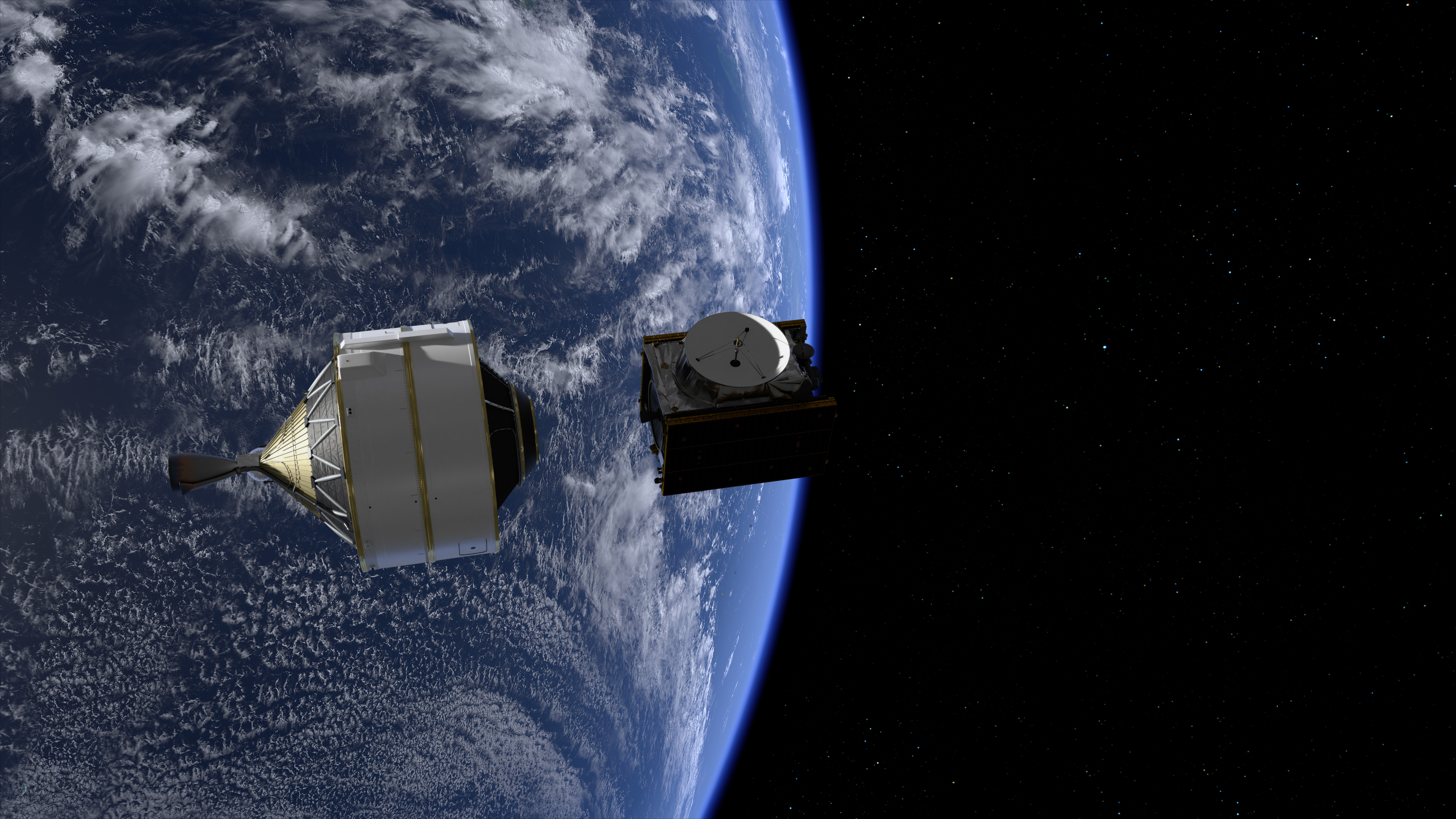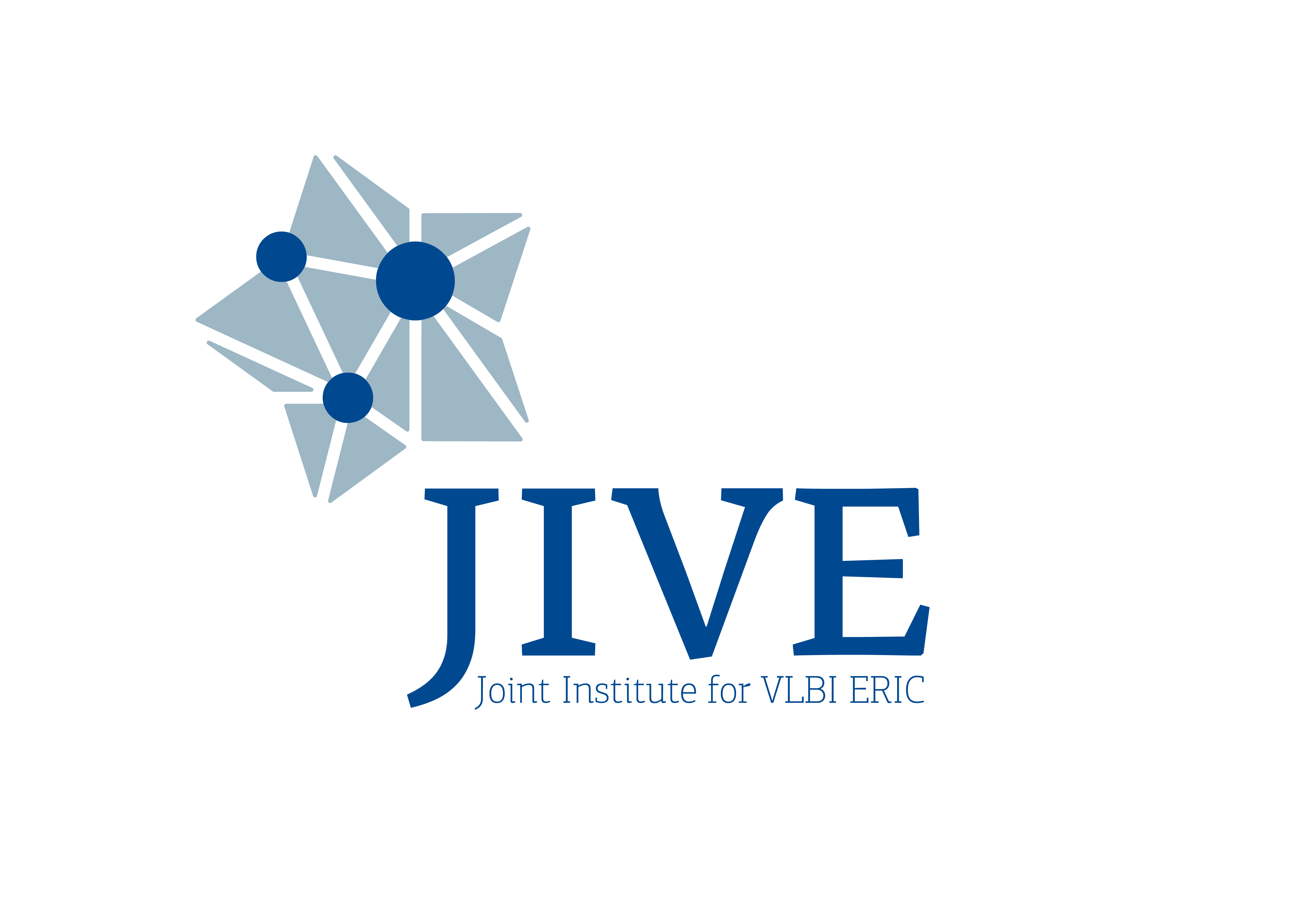
ESA’s Jupiter Icy Moons Explorer (JUICE) successfully launched with the Ariana 5 rocket from Europe's Spaceport Kourou in French Guiana on Friday 14 April 2023, at 14.14 CEST.
After years of preparations, JUICE’s satellite is on its way to explore the largest giant gas planet in our solar system, Jupiter, and its three large ocean-bearing icy moons; Ganymede, Europa and Callisto. The mission will characterize the icy moons as both planetary objects and possible habitats, explore Jupiter’s complex environment in-depth, and study the wider Jupiter system as an archetype for gas giants across the Universe. After an 8-year cruise toward Jupiter, which includes gravitational assists from Earth and Venus, the spacecraft will enter orbit around the giant planet in 2031.
PRIDE
One of JUICE’s 12 experiments is PRIDE (Planetary Radio Interferometry and Doppler Experiment) led by the Joint Institute for VLBI ERIC (JIVE) and Delft University of Technology in the Netherlands. The essence of the experiment is a mission-crafted modification of the radio astronomy technique called Very Long Baseline Interferometry. It provides the most accurate measurements of the celestial position of the radio transmitter of the spacecraft with a precision measured in tens of meters.
In addition, the experiment will supply measurements of the radial velocity of the JUICE spacecraft with the precision of the order of ten micrometres per second. Combined, these data will be used in combination with other remote and in situ measurements to improve the knowledge of the parameters of the motion of the icy moons and estimate their geophysical parameters. Ultimately, these studies will address the overarching questions about the origins and evolution of planetary bodies and provide input into studies of the origins of life.
Collaboration
PRIDE is an international collaboration led by JIVE and the Delft University of Technology and includes research organizations from Australia, France, Germany, Hungary, and observatories of the European VLBI Network (EVN).
The Joint Institute for VLBI ERIC (JIVE) is a research infrastructure providing central support to the European VLBI Network (EVN). JIVE's mission is to promote and implement the use of Very Long Baseline Interferometry (VLBI) and other radio astronomical techniques. JIVE implements the core data processing and user services that turn the EVN network of distributed telescopes around the world into a single observatory to study the radio sky at the highest possible resolution.
The Faculty of Aerospace Engineering of Delft University of Technology contributes to solving global challenges by educating new generations of socially responsible engineers with a genuine commitment to society. By expanding the frontiers of the engineering sciences and conducting ground-breaking scientific and technological research, acknowledged as world-class. We translate knowledge into technological innovations and activities with both economic and societal value.
Contacts
Leonid Gurvits – PRIDE Principal Investigator
Joint Institute for VLBI ERIC (JIVE)
gurvits@jive.eu
Giuseppe Cimò – PRIDE Deputy Principal Investigator
Head of Space and Innovative Applications
Joint Institute for VLBI ERIC (JIVE)
cimo@jive.eu
Dominic Dirkx – PRIDE Project Scientist
Assistant Professor
Delft University of Technology
D.Dirkx@tudelft.nl
Image
Artistic impression of ESA's Juice released into space (credit: ESA)
